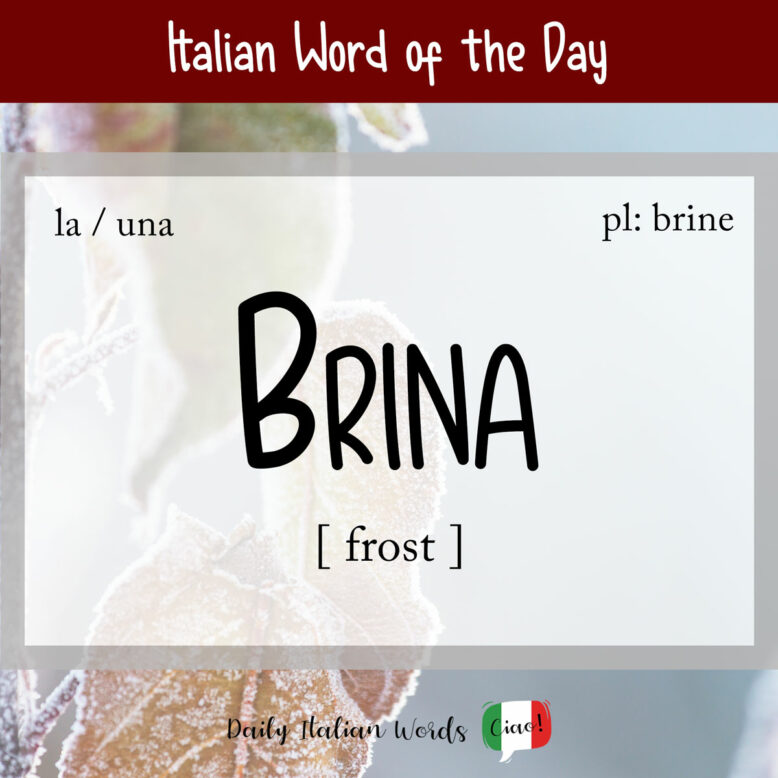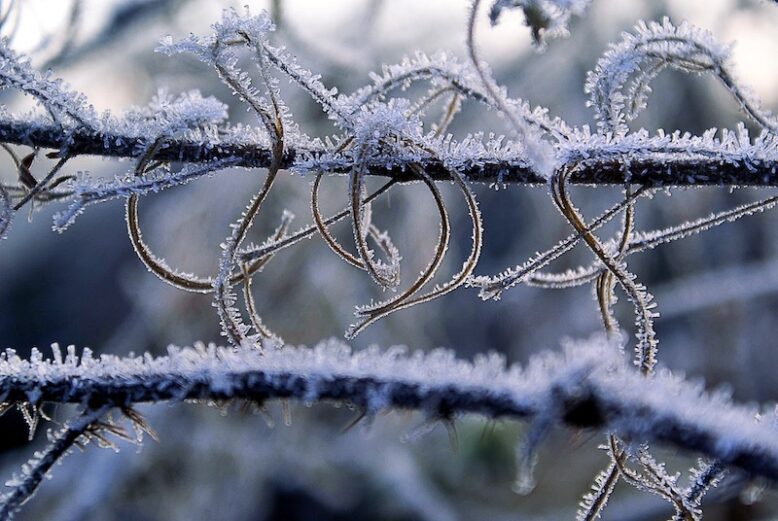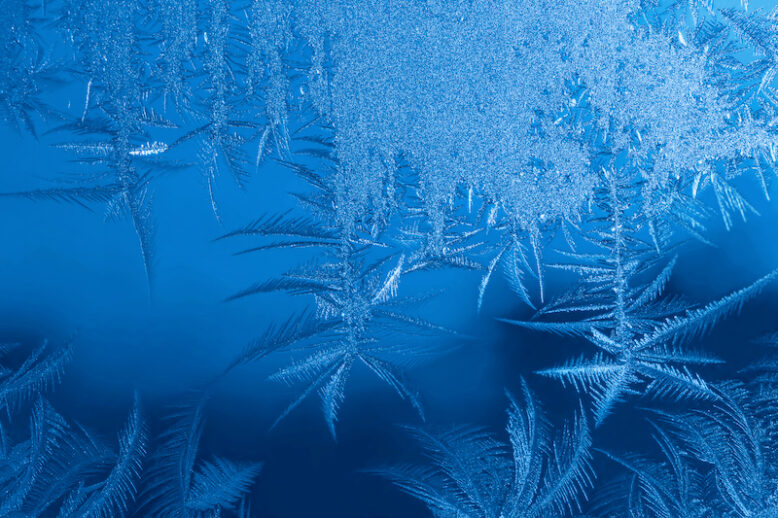As I was taking my son to nursery school early this morning, I noticed him looking at the sidewalk and grass, mesmerised by the shimmering layer of brina (frost / hoarfrost) that had powdered them white overnight.

Brina is a feminine noun whose plural form is brine. (Note, however, that the plural form is very uncommon.) It comes from the Latin pruina meaning hoarfrost.
la brina
the frost
una brina
a frost
le brine
the frosts
delle brine
(some) frosts
It shares the same etymological origin as the following terms:
- brinare = to frost up
- sbrinare = to defrost
- sbrinamento = defrosting
- sbrinatore = defroster
La brina può essere dannosa per la vegetazione.
Frost can be harmful to vegetation.

Brina can also be used to indicate the frost that accumulates inside a refrigerator. And, when there is too much of it, you need to remove it!
Devo sbrinare il frigo.
I need to defrost the fridge.
A particular type of brina, called fiori di ghiaccio (lit. ice flowers), occurs when water vapour freezes directly onto the internal surface of glass. For this to happen, the internal humidity must be quite high and the external temperatures, very low.

A possible synonym for brina is gelata, although the latter tends to refer more to a sudden drop in temperature which causes very intense cold, accompanied by the formation of ice and hardening of the soil.
Heather Broster is a graduate with honours in linguistics from the University of Western Ontario. She is an aspiring polyglot, proficient in English and Italian, as well as Japanese, Welsh, and French to varying degrees of fluency. Originally from Toronto, Heather has resided in various countries, notably Italy for a period of six years. Her primary focus lies in the fields of language acquisition, education, and bilingual instruction.


